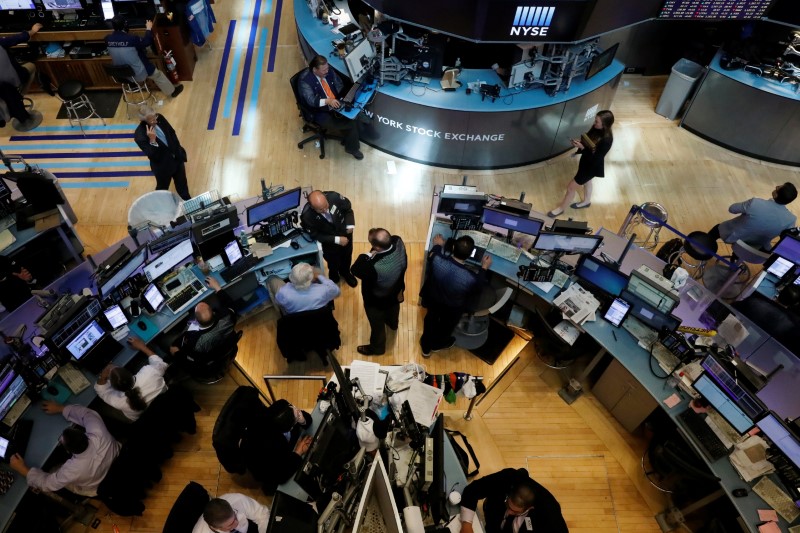By Geoffrey Smith
Investing.com -- The yen slumped to a new 24-year low against the dollar as China's trade figures cast doubt over the economic outlook for Asia. The Federal Reserve releases its Beige Book survey while the Bank of England girds to fight for its independence from new U.K. Prime Minister Liz Truss. Apple unveils its new 5G-enabled iPhone and Vladimir Putin rails against the U.S. Here's what you need to know in financial markets on Wednesday, September 7.
1. The incredible shrinking yen
The slump in the Japanese yen deepened after Tokyo warned about "rapid, one-sided" currency moves - without doing anything to stop them.
The dollar rose to a new 24-year high of 144.38 after China's monthly trade data showed a sharp slowdown in both import and export growth, suggesting that the slowdown in global demand for goods made in China is feeding through into Chinese demand for Japan's capital goods.
The dollar is now up more than 31% against the yen over the last 12 months, and the pace of this week's slide has sparked talk of intervention by the Bank of Japan, possibly in concert with other central banks. However, Reuters cited former Japanese currency diplomat Hiroshi Watanabe as saying Japan should not intervene or change monetary policy in response as they would be ineffective in stopping the dollar's advance.
2. Central banks on alert again
It's a big day for central banks around the world again, with both the Bank of Canada and the National Bank of Poland expected to raise interest rates again. Poland's rate hike cycle appears to be nearing its end, with the NBP expected to hike by only 25 basis points this time after a series of bigger ones in recent months.
However, analysts expect a jumbo hike of 75 basis points from the Bank of Canada, in what would be an echo of the latest Federal Reserve step and - possibly - a foretaste of tomorrow's action at the European Central Bank.
The Fed itself releases its Beige Book survey, while the MBA releases weekly figures on mortgage applications and rates. There'll be speeches early from the Fed's Loretta Mester and Tom Barkin (only Mester has a vote on the FOMC this year), and later, from vice-chair Lael Brainard.
In the U.K. meanwhile, Bank of England Governor Andrew Bailey is set to meet with the new Treasury chief Kwasi Kwarteng to discuss, among other things, the BoE's plans to start selling Gilts back into the market - just as the new government of Prime Minister Liz Truss seems set to embark on a big increase in government borrowing to fund her energy package.
3. Stocks set to open higher
U.S. stock markets are set to open with a modest bounce after falling to fresh two-month lows on Tuesday on concerns about the global economic slowdown and its impact on earnings.
By 06:30 ET (10:30 GMT), Dow Jones futures were up 50 points, or 0.2%, while S&P 500 futures and Nasdaq 100 futures were up in line.
Apple (NASDAQ:AAPL) is likely to dominate the session, with its unveiling of the new iPhone 14, despite expectations of only modest incremental changes to its design and capabilities. Overnight, Spanish oil and gas company Repsol (BME:REP) said it will sell 25% of its upstream business to energy and infrastructure experts EIG, with an eye to listing the business in New York in four years or so.
4. Europe eyes power price caps
The European Commission is set to propose capping the wholesale price of electricity for most types of generation in an effort to stave off a collapse of European industry over the winter.
The Financial Times reported that the Commission will propose capping the price of power generated by sources other than gas at 200 euros a megawatt-hour when EU energy ministers meet on Friday. The current spot price for German power electricity in Germany, the regional benchmark, is above 450 euros/MWh, while French prices hit 1,000 euros last week.
Wholesale electricity prices have skyrocketed because gas is usually the power source for marginal power production, which dictates wholesale prices. Gas prices are roughly 10 times the prevailing level of the past 10 years.
5. Oil prices tick upward as Putin rails
Crude oil prices continued to trade near seven-month lows as China's latest trade data did nothing to reassure about the global demand picture.
Fiery warnings from Russia's President Vladimir Putin that he would withhold all forms of Russian energy from "unfriendly" countries were only able to push prices up by around half a percent, leaving U.S. crude futures at $87.42 a barrel and Brent at $93.44 a barrel.
"We will not supply anything at all if it is contrary to our interests, in this case economic [interests]," Putin told a conference in Russia's Far East. "No gas, no oil, no coal, no fuel oil, nothing."
The American Petroleum Institute will update on U.S. supply-demand balance at 16:30 ET, a day later than usual due to the Labor Day holiday, which typically signals the end of peak summer demand in the U.S.
